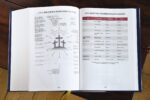9 Tips on How to Effectively Study the Bible

All Scripture is God-breathed and is useful for teaching, rebuking, correcting and training in righteousness, so that the servant of God may be thoroughly equipped for every good work. 2 Timothy 3:16-17 NIV
As you begin to study the Bible, determine your goals, methods and resources. If you simply want to be a more careful reader of the Bible, perhaps begin by reading a small portion of the text daily with a Bible reading plan. If you want to put serious effort into learning the Bible, you will need to make a greater commitment. Such an approach may involve several hours a week of focused study and the use of resources such as commentaries. There are also some basics that apply:
Take Seriously the Importance and Quality of the Book You’re Studying:
Although we may wish the Bible were entirely clear, students of literature would never expect that from other important books. When it comes to the Bible, it should be obvious that we have to study the Bible to understand it.
Some writing – a newspaper story, for example – might be understood by almost any mature reader. Other writings – such as a Shakespearean play – might require readers to consult dictionaries, study guides and other aids because of the nature of the language and the subject matter. Yet other writing – a calculus textbook, for example – might require years of prior study as well as patient, focused effort to understand even a single page. The Bible contains literature at all these levels: Some parts any reader can follow, some parts that require help and some that are difficult enough that even seasoned scholars struggle to comprehend them.
This is to be expected. A book claiming to be authorized by the One whose thinking and communication can range from the simplest level to far above human understanding should require serious effort from seekers of its truth. It is naive to think that the Bible differs from other literature in being automatically comprehensible, or that our good intentions and love of God will overcome our need to study in order to appreciate the quality of the ideas he has put into writing for us.
Respect the Bible’s Genres:
No serious Bible student can ignore the various genres in the Bible. Ten predominate: narrative, law, wisdom, psalms, and prophecy in the Old Testament; and gospel, parable, Acts, letter and apocalypse in the New Testament. To understand and appreciate the Bible’s content, each of these genres must be read differently.
Consider two examples: Parables are stories told to willing students, not those who refuse to bother with what seems irrelevant to them (Mt 13:10-17). Thus, they resemble puzzles, containing punch lines that help willing readers see a truth they might have otherwise missed. Western culture is not used to parables, but with reasonable study, the parables of the New Testament reveal a great deal about the nature of God’s Kingdom.
Similarly, proverbs, part of the Old Testament Wisdom literature, frequently present life’s choices in a semi-riddle fashion, which require that readers take time to understand them. Those who work out the meaning of a proverb often read it repeatedly and thus learn its content while trying to understand its point.
Respect the Format:
The format of the Bible requires appreciating it as an anthology of many books, each of which has its own integrity: Readers of the Bible must start by recognizing the genre of a given book and then reading it as both a unique piece of literature and one that contributes to the overall message of the anthology. The Bible is an integrated and univocal text that benefits the reader at both the individual book level and as a whole.
Respect the Historical Sweep and Context:
In one sense, the Bible is like a world epic: It covers the sweep of history from the very beginning of Creation to the end of history when our universe is radically transformed. Biblical books always deal with something that is part of this very big picture – the story of God’s creation, its fall, his ongoing redemption of it and/or the ultimate consummation of all the hopes of God’s people fro a permanent establishment characterized by God’s goodness. Few other books, even other religious scriptures, resemble the scope of the Bible.
Respect the Multidisciplinary Nature of Careful Study:
There are several different ways to look at any piece of literature. In the case of the Bible, it pays to look from every angle that might yield a payoff. It is convenient to think of 11 such angles, or steps, in the study process:
- Text – Seeking the original wording to avoid treating a scribal error that accidentally crept into the text as original. (Translations and study notes already depend on this scholastic research.)
- Translation – Studying how to best convey in a modern language the concepts conveyed by the original Hebrew, Aramaic or Greek. (consulting multiple translations and study notes aids in this process.)
- Grammar – Analyzing the language of the passage under consideration to be sure it is not misunderstood. (Even one-volume commentaries will often explain these issues.)
- Lexical content – Seeking the correct meaning of individual words and phrases found in a passage. (Study notes, commentaries and Bible software aid in this process.)
- Form – Studying the literary category and the characteristics that make any passage special. (Study Bible articles on genre serve this process.)
- Structure – Analyzing the way the elements of a passage are ordered and how that affects its meaning. (A careful reading of the Biblical text, especially with the aid of commentaries, makes this possible.)
- Historical context – Studying the milieu in which the Bible was revealed, which helps yield the point of its contents. (One-volume commentaries and study notes, like those of the NIV Faithlife study Bible, are designed to reveal this.)
- Literary context – Studying how a passage fits within the book of which it is a part and how that affects its meaning. (Examining how a passage relates to those before and after it, and to the book as a whole, helps with this interpretive step.)
- Biblical context – Analyzing what a passage contributes to the Bible as a whole and what the rest of the Bible contributes to understanding the passage. (Reading through the Bible as a whole, and reading passages that are cross-referenced, help with this.)
- Application – Seeking to conform beliefs and actions to the guidance the Bible imparts. (Act on what the Bible says.)
- Secondary literature – Examining the wisdom and diligent study of others as they have put it into books and articles. (This step should be used throughout study, but it is usually best to do after attempting to draw your own conclusions and is best done in conversation with other believers in Jesus.)
Don’t Try to Reinvent the Wheel, and Don’t Go it Alone:
As you read through the Bible, look up anything you don’t fully know or understand. Make use of the many good resources available to help you be a better student of the Bible than you would be on your own.
Bible dictionaries give an overview and a brief analysis of virtually any topic mentioned in the Bible, and they also connect that information to the various books and major doctrines of Scripture. Likewise, Bible commentaries explain Bible passages from an expert angle. Reading with a good study Bible provides additional help. Such resources introduce Bible books and special topics, and provide aids that explain the particular verse or passage under investigation.
Take Notes, Like a Good Reader Should:
If you rely entirely on your own memory, you’ll eventually lose many valuable insights. But if you develop an external memory – your notes of observations you’ve learned – you will preserve them. Writing down what you have learned also forces you to express your thoughts more cogently and carefully that if you merely relied on memory. Memory fades with time, but written notes provide you with an element of stability and continuity for that you’ve learned in Bible study.
Respect the Difference Between Words and Concepts:
Most people are not aware of the difference between words and concepts, yet respecting these differences is essential to accurately interpreting the Bible. For example, in Luke 10 when Jesus illustrates what it means to “love your neighbor as yourself,” he tells the story of the Good Samaritan. This account does not include the words “love,” “neighbor” or “self,” but the story richly includes the concept of loving neighbor as self and shows how that concept works in an exemplary illustration.
A significant aspect of Bible study is understanding the words used in the text. But even more important is understanding the concepts used – the point, significance or meaning of a passage, verse, statement or word.
Pray for Help and Study with Other Christians:
Ask God for help and guidance in your Bible study. God will empower you with the desire, patience, and discernment to recognize the simple truths of the Bible and understand the complicated concepts. In addition, read the Bible in Christian community, as that is a critical component of growing as a Christian.
Which of these tips is most helpful for you?


















